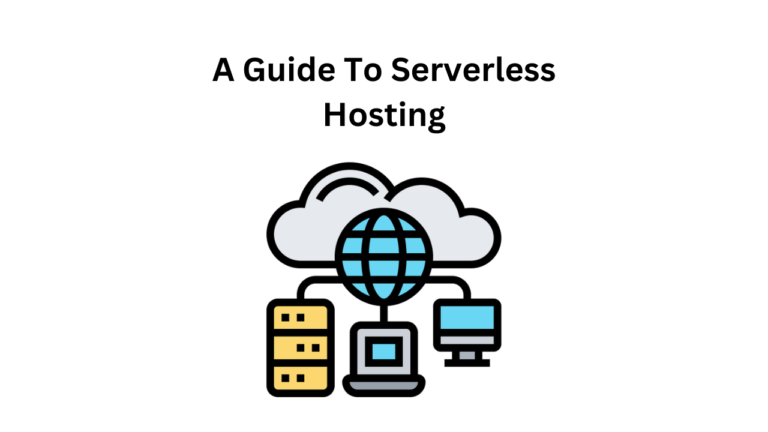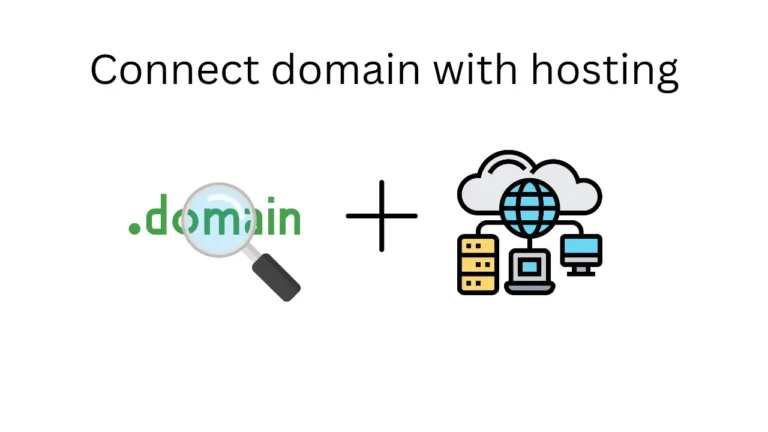Introduction
In today’s digital landscape, establishing an online presence is more crucial than ever for individuals and businesses alike. With a myriad of choices available, the allure of cheap hosting services often captivates those who are just starting their online journey. The promise of low prices can be enticing, as it allows aspiring entrepreneurs and hobbyists to launch their websites without hefty financial commitments. However, while the initial cost may seem appealing, there are underlying issues associated with bargain hosting solutions that many providers do not reveal.
The convenience and affordability of cheap hosting can lead to significant compromises in performance, security, and support that are often overlooked. It is essential to recognize that the cut-rate prices typically come at a cost, as many hosting companies may reduce their service quality to maintain profitability. This often results in slower loading times, frequent downtimes, and limited customer assistance. Such drawbacks can significantly impact user experience, driving away potential visitors and leading to lost business opportunities.
Furthermore, many cheap hosting providers may employ misleading marketing tactics to attract customers, only to impose hidden fees or restrictions after the purchasing decision has been made. This lack of transparency can create frustration and disillusionment as users grapple with limitations unforeseen at the outset. It is important for users to familiarize themselves with the potential downsides of opting for low-cost hosting options, and weigh these against their own needs and expectations.
Ultimately, while budget-friendly hosting solutions may appear attractive, the reality is that they may not be the best long-term investment for anyone looking to build a reliable and professional online presence. As we delve deeper into the hidden dangers of inexpensive hosting, it is critical to consider both short-term and long-term implications to ensure a fully informed choice.
The Allure of Cheap Hosting
In today’s digital age, the allure of cheap hosting plans is hard to resist. The prospect of cutting costs while launching a website can be as appealing as stumbling upon a $5 bill on the ground. Initially, it feels like an unexpected treat, sparking joy and excitement about the savings. Everyone wants to save a few bucks, especially when starting a new venture, whether it be a blog, e-commerce site, or a professional portfolio. With budget hosting solutions often boasting prices as low as a couple of dollars a month, it’s easy to see why so many are drawn in.
However, much like that found $5 bill, budget hosting can come with unexpected footnotes. The seemingly attractive price tag typically masks a plethora of potential pitfalls. Cheap hosting often translates into limited resources, leading to slower site speeds, inadequate customer support, and high chances of downtime. These issues can inhibit the user experience significantly, resulting in lost traffic and potential revenue. It becomes all too clear that the initial savings may not be worth the long-term compromises.
Moreover, the service quality often falls short in the world of budget hosting. Think of it as riding in a vintage car that looks appealing on the outside, but once inside, it’s the smell of mildew and a malfunctioning radio that immediately shatters the illusion of a great deal. Many providers offer enticing introductory prices that skyrocket upon renewal, leaving unsuspecting customers puzzled over their bills. This deceptive pricing strategy is akin to that moment of realization when you discover the $5 bill is stuck under someone else’s shoe; it was not as lucky a find as you first thought.
Therefore, while the notion of cheap hosting is undeniably appealing, it is essential to scrutinize the long-term implications and the value that such plans provide. By assessing the full spectrum of services and potential drawbacks, one can make a more informed decision that extends beyond mere cost.
Hidden Costs and Fees
While affordable web hosting packages may seem appealing at first glance, they often come with hidden costs that can quickly escalate the overall expenditure. These fees are not always transparent during the initial sign-up process, leading unsuspecting customers to be blindsided when their first bill arrives. It is essential for potential users to understand these financial implications when considering budget-friendly hosting options.
One common hidden cost is the renewal fee. Many hosting providers lure customers in with significantly discounted introductory rates for the first year. However, once this period expires, users might find themselves facing renewal fees that are considerably higher. For example, a hosting plan that begins at $3.99 per month could jump to $9.99 per month upon renewal, resulting in a substantial increase in annual expenses. Customers are often caught off guard by this dramatic price shift.
Upgrade costs are another factor that can contribute to rising bills. Cheap hosting plans may initially provide limited storage, bandwidth, or performance specifications, which can lead users to require additional resources as their website grows. When this happens, they may be forced to upgrade to a more expensive plan without being aware of the increased financial burden.
In addition to renewal and upgrade fees, many hosting providers impose overage charges. For instance, if a website exceeds its allocated bandwidth, users could incur hefty penalties. Picture a novice website owner who confidently sets up their new blog, only to later receive a bill for an exorbitant amount because their traffic exceeded the allowed limit. These unforeseen circumstances create not only financial strain but also frustration for those who sought economical solutions.
In light of these potential hidden costs, it becomes crucial for consumers to meticulously review the terms and conditions of budget hosting services before committing. Understanding all possible fees can help mitigate surprises and ensure a more transparent hosting experience.
Performance Issues: A Load of Trouble
When it comes to website hosting, one cannot overlook the significant impact that cheap hosting services can have on performance. Picture this: your website is like a sloth taking a leisurely stroll through a thick jungle. Sure, it’s amusing to watch, but for the visitors who are eagerly clicking their way through your content, that slow loading time can induce frustration akin to waiting for a pot of water to boil.
Affordable hosting typically entails a few sacrifices, particularly in terms of server speed and reliability. Often, these budget-friendly options use overcrowded servers. This means that multiple sites share the same processing power, which can lead to a catch-22 situation—lots of users trying to access a website at the same time, resulting in slower response rates. As a result, your website might load slower than a sloth on a Sunday stroll. Visitors accustomed to seamless experiences are likely to abandon slow-loading sites, causing potential traffic losses.
Furthermore, frequent downtimes are another hallmark of cheap hosting services. An unstable site can not only affect user experience but can also harm your search engine rankings. Google and other search engines prioritize websites that deliver optimal performance and reliability. If your site is constantly going offline, you can expect to see your visibility plummet like a sloth falling from a tree—slowly and painfully.
In this digital age, where users expect immediacy, the cost-saving allure of cheap hosting can turn into a recipe for disaster. Ultimately, it’s wise to evaluate whether saving a few dollars is worth the potential performance issues that could leave your website dragging along like a leisurely sloth. It might be time to consider investments that prioritize quality over cost, ensuring your site operates smoothly and efficiently.
Lack of Customer Support
Choosing an inexpensive hosting provider often comes with a multitude of benefits, such as low upfront costs and attractive promotional rates. However, these appealing features frequently mask a significant drawback: inadequate customer support. Navigating this aspect of budget hosting can lead to frustration for users, particularly when technical issues arise or urgent assistance is needed. Many inexpensive hosting companies streamline their operations to save costs, often resulting in a lackluster customer support experience.
Users frequently find themselves entwined in prolonged waiting periods when attempting to reach customer support. It’s not unusual for individuals to share humorously exaggerated scenarios where they are left waiting on hold, only to pour themselves a second cup of coffee before anyone answers. In some cases, individuals have reported waiting for upwards of an hour, which can feel like an eternity while dealing with website downtime or configuration issues. Such situations lead many to question the true value of ‘cheap’ hosting solutions, especially when business operations hinge on timely and effective support.
Moreover, the quality of assistance provided, when one finally connects with a support representative, may leave much to be desired. Agents may lack the necessary training to resolve complex issues or offer scripted responses that do not address specific user concerns. This scenario can be especially disheartening for those who are not tech-savvy. Ultimately, what was marketed as an affordable hosting package often transforms into an exercise in patience, as the pursuit of satisfactory support proves to be a burden rather than a solution.
Consequently, users may find themselves reconsidering their initial choice of provider as they weigh the cost savings against the critical element of customer support. The lessons learned from these experiences highlight a significant “hidden cost” associated with cheap hosting: a lack of reliable assistance when it is most needed.
Security Risks Galore
In the pursuit of cost-effective solutions, many businesses turn to cheap hosting services to save on operational expenses. However, the allure of low prices often masks serious security vulnerabilities that can have devastating implications. Cheap hosting providers frequently cut corners, compromising essential security measures. This negligence may expose websites to a myriad of cyber threats, including malware, data breaches, and DDoS attacks.
Consider the case of Jack, a small business owner who, in his quest to maximize profits, opted for a budget hosting plan. Initially, the savings seemed significant, but Jack soon encountered a variety of security struggles. His website, which housed sensitive customer information, became an easy target for hackers due to inadequate encryption and weak server security protocols. The repercussions were swift; his site was infected with malware, leading to a shutdown for several days, loss of customer trust, and a plummet in sales.
Moreover, cheap hosting often lacks essential features such as regular backups and timely software updates, crucial components for maintaining a secure environment. Jack learned the hard way that the lack of these features made his website increasingly vulnerable. Each day of neglect put him at risk of losing not only his business but potentially exposing his customers’ personal information, which could lead to identity theft. Such issues illustrate the irony that while Jack aimed to save money, his oversight in cybersecurity resulted in far greater costs through legal ramifications and reputational damage.
Ultimately, the false economy of cheap hosting can have severe consequences that extend beyond immediate financial savings. It is essential for users to recognize that security should always be a priority, as neglecting this aspect can transform it into a costly gamble.
Limited Features and Scalability
When contemplating budget hosting options, it is essential to understand the implications of limited features and scalability. Often, these inexpensive plans are enticing due to their low price points, but they come with significant restrictions that can hinder your website’s performance. For instance, many cheap hosting providers impose strict bandwidth limits that can prevent your site from handling the traffic it deserves. Imagine driving a sports car on a country road laden with potholes; although the car has the potential for exhilarating speed and agility, the road conditions severely restrict its capabilities. Similarly, restricted bandwidth can throttle your website’s performance during peak traffic periods, resulting in slow loading times and potential downtime.
Moreover, outdated technology is another frequent drawback of budget hosting services. Many providers depend on older infrastructure that lacks the speed, reliability, and security features offered by modern alternatives. This is akin to using a flip phone in an age of smartphones; while the flip phone may suffice for basic functions, it is ill-equipped to handle advanced applications or multitasking. As your online presence grows, these limitations can become increasingly debilitating, stalling your ability to implement new features or scale effectively.
In addition to bandwidth and technology issues, other features typically associated with higher-tier plans—such as robust storage options, excellent customer support, and advanced security measures—are often absent in cheaper offerings. Thus, while the initial cost may seem attractive, the long-term impact on your website’s scalability and overall functionality may prompt you to reconsider your hosting choice. The true costs of budget hosting extend far beyond the monetary savings, making it imperative to assess these limitations before committing to a plan.
The Migration Headache
One of the most significant challenges faced by users of cheap hosting services is the migration process when they decide to switch to a more reliable provider. The transition is often likened to moving houses without proper packing—a chaotic and messy adventure that few relish. Many users underestimate the complexities involved, resulting in unanticipated complications. For instance, a small business owner recently reported that when migrating away from their budget hosting service, they encountered severe downtime, which led to a loss of customer confidence and missed sales opportunities.
The difficulties commonly arise from the lack of support provided by inexpensive hosting vendors. Many of these services do not guide their clients through the migration process, which can lead to data loss or misconfiguration. A freelance developer recounted a similar experience, explaining how the absence of support resulted in an entire website being off-line for several days while contesting with unexpected compatibility issues between the old and new hosting environments. Such instances illustrate the stress and frustration users face, as they navigate through what should be an essential upgrade.
Moreover, the potential for hidden fees increases dramatically during migration. Cheap hosting providers often impose charges for data transfers, additional storage, or technical help, turning what initially appeared to be a budget-friendly option into a financially draining endeavor. This discouraging reality further exacerbates the frustration that accompanies even the most straightforward migration plans. The original allure of cost-effectiveness quickly dissipates when faced with these logistical nightmares. Users tend to realize too late that the affordability of cheap hosts may come at the expense of convenience, support, and ultimately, their business’s success.
Key Takeaways
As we draw our discussion to a close, it is essential to emphasize the critical considerations when making decisions regarding web hosting solutions. While cheap hosting options may seem enticing due to their appealing price tags, several underlying issues often accompany these budget-friendly services. These complications may not be immediately apparent, leading to significant repercussions for business operations.
First and foremost, reliability is a major concern associated with low-cost hosting. Many inexpensive providers struggle to maintain consistent uptime, which can result in additional costs and lost opportunities for businesses operating online. A website that experiences frequent downtimes frustrates users and can lead to decreased website traffic and subsequent revenue decline.
Additionally, limited customer support is often a common pitfall tied to cheap hosting providers. Adequate customer service is indispensable, especially for those who may lack technical expertise. Low-cost hosting solutions frequently offer minimal support options, which complicates troubleshooting and maintenance. Consequently, businesses may find themselves grappling with critical issues without access to the necessary help.
Moreover, performance issues can arise from using budget hosting services. Sites hosted on these platforms may experience slower load times, affecting user experience drastically. Search engines also prioritize fast-loading websites, which means poor performance could negatively impact search engine rankings, further hindering online visibility.
In conclusion, while the allure of cheap hosting may be strong, the potential downsides warrant serious consideration. By weighing the risks and benefits, businesses can make informed decisions that not only meet their financial constraints but also align with their long-term goals. Prioritizing quality hosting options ensures a balance between cost and performance, ultimately fostering better growth opportunities online.
FAQs about Cheap Hosting
Is cheap hosting ever a good idea? Cheap hosting can be appealing for individuals or small businesses on a budget. However, it is important to approach it with caution. While affordable hosting plans might provide initial savings, they often come with significant drawbacks. Users may experience slower speeds, limited bandwidth, less reliable uptime, and inadequate customer support. Additionally, many cheap hosting options might not include essential features such as regular backups, SSL certificates, and advanced security measures. Therefore, while it can be suitable for smaller, less critical projects, it is vital to evaluate your specific needs before choosing a budget hosting option.
What are some alternatives to consider? Instead of opting for cheap hosting, there are several alternatives worth considering that provide a better balance between cost and service quality. First, look for shared hosting plans from reputable providers that offer more competitive pricing without compromising on performance or support. Virtual Private Servers (VPS) can also be an effective compromise, delivering enhanced resources and control over your hosting environment at a moderate price. Additionally, managed hosting services cater to those who prefer a hands-off approach, where the provider takes care of maintenance, updates, and security, often leading to fewer issues in the long run. Lastly, consider cloud hosting solutions, which can scale with your business needs and offer pay-as-you-go options that provide flexibility without the pitfalls associated with ultra-cheap hosting.
Overall, it is essential to weigh the potential risks and rewards carefully when considering cheap hosting solutions. Factors such as reliability, customer service, and available features are crucial to ensuring a positive online presence.


